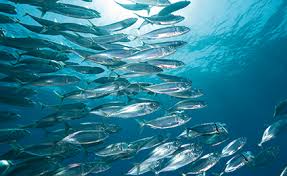Light Fishing Threatens India’s Coastal Ecosystems
India’s extensive coastline is facing challenges from illegal fishing practices, particularly light fishing. This method employs high-intensity artificial lights to attract fish, causing severe ecological damage and threatening traditional fishers’ livelihoods. Despite a national ban on this practice in 2017, enforcement remains inconsistent, leading to ongoing conflicts and resource depletion.
The Nature of Light Fishing
Light fishing involves using powerful LED lights to lure fish to the surface. This technique leads to overfishing, often capturing juvenile fish and non-target species. The practice is banned in India’s Exclusive Economic Zone but continues to thrive due to weak enforcement.
Impact on Marine Biodiversity
The ecological consequences of light fishing are alarming. Studies indicate that it contributes to juvenile stock depletion and coral reef degradation. High-intensity lights disrupt spawning cycles and can lead to the collapse of local fish populations, affecting the entire marine food web.
Economic Consequences
Traditional fishers rely on sustainable methods for their livelihoods. However, light fishing gives mechanised vessels an unfair advantage, leading to dwindling catches for artisanal fishers. The economic disparity exacerbates tensions among fishing communities, as small-scale fishers struggle to compete.
Regulatory Challenges
While the national government has implemented a ban, state-level enforcement varies . Some states have partial restrictions that create loopholes. Inadequate patrolling by authorities allows illegal light fishing to persist, undermining conservation efforts.
International Comparisons
Countries like Italy and Japan have successfully regulated light fishing to protect marine resources. Their experiences highlight the importance of balancing innovation with sustainability. India could adopt similar strategies to preserve its marine ecosystems while supporting local livelihoods.
Recommendations for Policy Improvement
A uniform nationwide policy is essential to address the challenges posed by light fishing. This should include stricter penalties for violators, increased patrolling, and educational initiatives for fishers. Additionally, providing subsidies for sustainable fishing practices could facilitate the transition away from harmful methods.
The Future of India’s Marine Resources
Without immediate and effective action, India risks losing its rich marine biodiversity and the livelihoods dependent on it. A comprehensive approach involving all stakeholders is necessary to ensure the sustainability of marine resources for future generations.
Month: Current Affairs - March, 2025
Category: Environment Current Affairs







